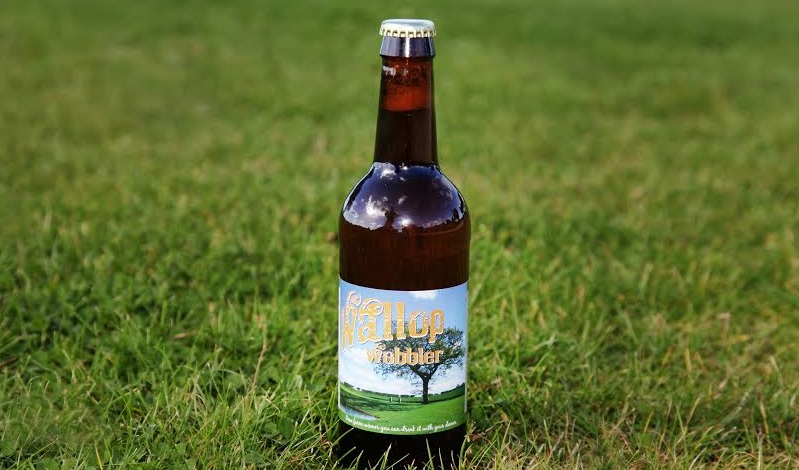
Southern counties farmer, Nigel Pond, is toasting success after winning a prestigious competition for the quality of his spring malting barley – with his prize being to receive 500 bottles of beer brewed from his winning crop.
Mr Pond, who farms 330 hectares at Dene Farm, near Stockbridge, Hampshire, also got to choose the recipe for his beer – which was made using his 2014-harvested crop of the variety Propino – and to add the finishing touches by naming the brew and helping to design the bottle’s label.
But as well as the crop’s quality winning the competition – which was judged by agricultural merchant Robin Appel and supported by Warminster Maltings and Syngenta – its yield also surpassed the farm’s usual spring barley yields by as much as 1 t/ha.
Added to that, the rest of the crop made the grade for one of the region’s important markets for spring malting barley – that of export.

“I was ecstatic about winning,” explains Mr Pond, who has been farming at Dene Farm for 36 years, having followed in the footsteps of his father and grandfather. “We’ve grown Propino for about four years. We like its yield and its ability to give us a low grain nitrogen content. This year it was between 1.5 and 1.6%, which is exactly what we are aiming for. It’s always done really well.
“We chose the recipe for the beer after tasting lots of others and deciding which one we liked best. And we called the beer ‘Wallop Wobbler’ because the village we live in is Nether Wallop, and if you have enough of the beer you start to wobble. It’s got a standing power of four: if you have five you fall over,” he adds.
With a long history of growing spring barley on the farm, Mr Pond says the crop plays a central role in the farm’s three-year rotation, slotting in between first wheat and break crops of either oilseed rape or peas on his chalk and flint soils.
Farming close to the port of Southampton also means spring barley varieties with potential for both UK use and export form a key part of those grown on the farm – two markets where Propino fits.
“Spring barley is important in the rotation,” Mr Pond continues. “We probably couldn’t grow winter wheat without it. Being a spring crop it also helps with our grass weed management – it cleans the land up. There is no black-grass on the farm.”
Typically, the farm’s spring malting barley yields range from 8 - 8.6 t/ha. But the winning Propino crop also topped that at 9 t/ha, says Mr Pond, and produced a plump grain size with less than 2% passing through a 2.25 mm sieve. After tasting success in the competition, Propino is set to continue to be grown on the farm in 2016.
Commenting on the competition, Jonathan Arnold, director of barley and oats at Robin Appel, said low grain nitrogen and good grain size were among the key factors for judging – along with varietal purity, absence of splitting, skinning or Fusarium infection of grain, and a low level of weed seeds.
He added that yield is important for profitability with the crop, and growing a variety with export and UK market potential is an important consideration.
“Growers in the south have got to look at export varieties,” said Mr Arnold, “because we are a long way from domestic consumption of any size. Look at export out of Southampton or Poole – at what they are taking. The vast majority is Propino,” he adds.
“Then look at the domestic scene: there may be some low nitrogen premium for Propino for it to possibly travel east.”
